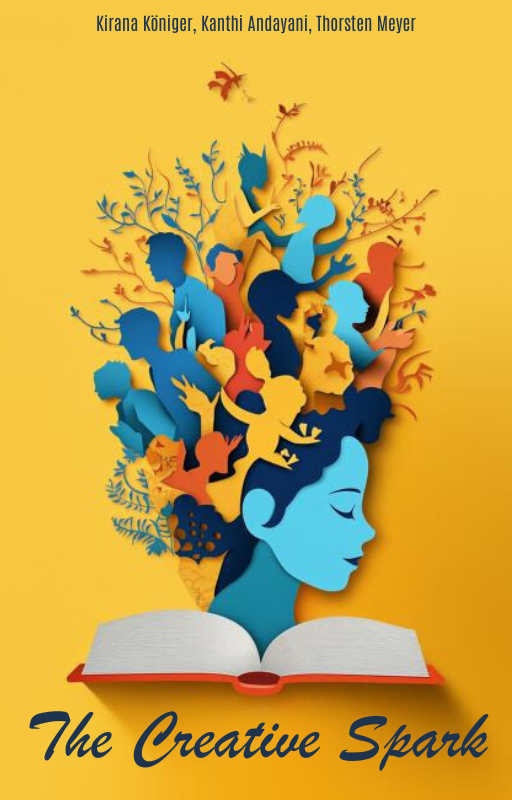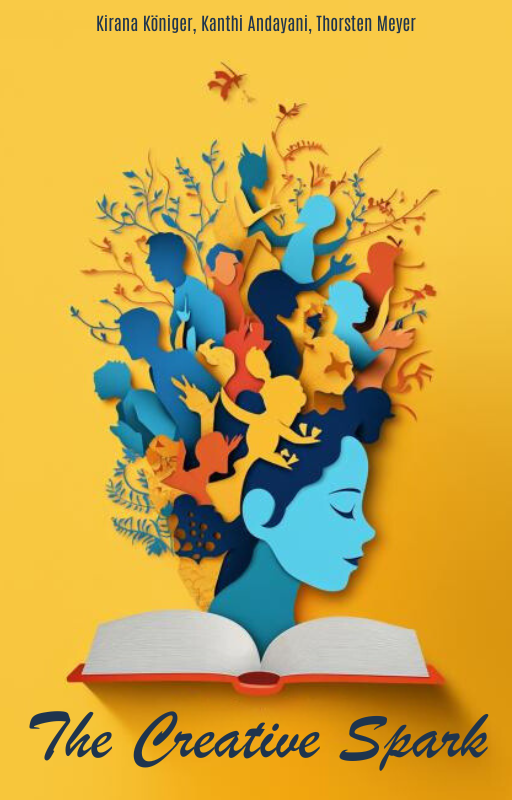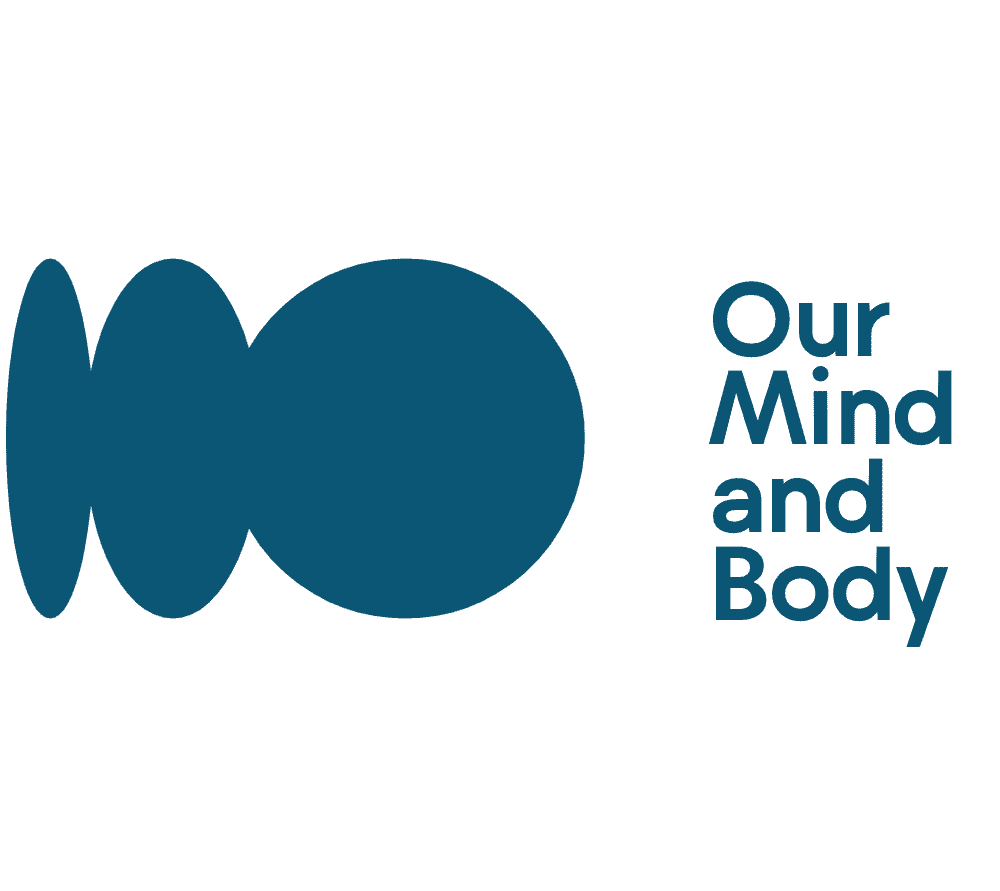Personal Growth
Unlocking Personal Growth: The Power of Self-Reflection for a Purposeful Life

Self-reflection is a crucial practice for exploring and evaluating our inner selves. By delving into our thoughts, feelings, beliefs, values, goals, and motivations, we can gain a deeper understanding of who we are as individuals. It is a process of introspection that allows us to better comprehend ourselves on a personal level.
Reflection involves analyzing what has been learned or experienced through contemplation rather than simply taking it at face value. This type of reflection helps us gain insight into our own reactions, behaviors, decisions and choices. By engaging in self-examination we can more effectively identify areas for personal growth and development as well as develop greater clarity about how to move forward in life.
The importance of self-reflection lies in its ability to deepen our awareness of ourselves—our strengths and weaknesses—and provide opportunities for further growth and transformation. In this way, self-reflection encourages us to take responsibility for our actions while enabling us to be more conscious about how we show up in the world. With this increased knowledge comes greater power over our emotions, thoughts, words, behaviours and ultimately – our lives. Reflecting on these aspects allows us to discover unique insights that will help guide us towards making wiser decisions moving forward with intentionality.
Benefits Of Self-Reflection
Self-reflection is a powerful tool for personal growth and discovery. It helps us become aware of our thoughts, feelings, and behaviors so that we can make positive changes in our lives. Through self-reflection, we can gain greater insight into ourselves and understand how to better manage our emotions and reactions. The benefits of self-reflection are numerous:
- Self-discovery: By taking time to reflect on your life experiences, you will be able to identify patterns in your behavior and learn more about yourself. You may discover strengths or weaknesses that you didn’t know existed within yourself, allowing you to improve upon them or develop new skills.
** Mental clarity: As mentioned earlier, the act of reflecting upon your life can help clear away any mental fog that might have been clouding your thinking. With increased clarity comes improved decision making capabilities as well as an overall boost in productivity levels.
** Emotional balance: Engaging in self-reflection allows us to recognize negative thought patterns before they take hold. This enables us to process difficult emotions such as anger or sadness without getting overwhelmed by them. Regularly practicing self-reflection also helps build resilience which further contributes to emotional stability over time.
Through regular reflection, we open up a world of possibilities when it comes to understanding ourselves better – one that leads towards personal growth and development with each passing day. Identifying our strengths and weaknesses provides us with invaluable insight that empowers us to live healthier, happier lives.
Identifying Your Strengths And Weaknesses
Self-reflection is an invaluable tool that can help you identify your strengths and weaknesses. It allows us to look inward and examine our own personal traits, values, beliefs, habits, and behaviors. By taking time for self-reflection, we are able to gain a better understanding of who we are as individuals.
When engaging in self-reflection, it’s important to be honest with yourself about what aspects of yourself you appreciate the most – or even dislike. This step helps to bring clarity on which areas need work or improvement. If you focus too much on negatives without acknowledging any positives, then this will lead to feelings of defeatism instead of motivation. Therefore, it’s important to take note of both positive and negative traits when going through this process.
In addition to looking at your personality traits and characteristics objectively, self-reflection also gives you the opportunity to explore how those same qualities affect other people around you – particularly those closest in your life such as family members and friends. In doing so, it can give insight into where changes may need to be made in order for relationships within these circles to function more effectively or harmoniously than before.
By engaging in regular self-examination sessions like these, one has the ability uncover valuable information about themselves that can be used for growth purposes. The next step after realizing your strengths and weaknesses is examining your habits and behaviors – things that could potentially hold you back from reaching new heights if left unchecked or unaddressed.
Examining Your Habits And Behaviors
Self-reflection is a powerful tool to examine our habits and behaviors. By taking the time to look inward, we can understand how our life choices are impacting us now and in the future.
Let’s take a moment to reflect on some of the most important aspects of our behavior that need focus:
| Habits/Behaviors | Examining | Changing |
|---|---|---|
| Emotions | Acknowledge | Find outlets |
| Thoughts | Identify | Redirect |
| Relationships | Evaluate | Communicate better |
As self-reflection experts suggest, it’s essential for each person to assess their emotions, thoughts and relationships with others. We must acknowledge them first before considering ways to change them. For instance, if you find yourself feeling negative about something, identify what triggered those feelings so you can redirect your thinking towards different avenues. Similarly, when evaluating relationships with friends and family members, consider possible improvements in communication styles or topics discussed. Doing this helps create healthier connections between individuals.
By examining these areas of our lives we gain insight into not only who we are but also learn steps toward becoming more mindful people. It allows us to recognize strengths as well as weaknesses while understanding our motivations and goals much better.
Understanding Your Motivations And Goals
Reflecting on your habits and behaviors is an important step towards understanding yourself better. The next stage in the process of self-reflection is getting to know your motivations and goals. By examining what drives you, your aspirations, and what brings you fulfillment, you can discover more about who you are as a person.
Here are some key points to consider when reflecting on your motivations and goals:
- Think about why you do the things that make up your daily routine – why do they matter to you?
- Consider what makes life meaningful for you – this could be related to work, relationships or personal projects.
- Ask yourself where these motivations come from – both internally (intrinsic) and externally (extrinsic).
- Reflect on how reaching certain goals will make you feel when achieved.
Understanding the drivers behind our behavior helps us gain greater insight into ourselves. It also enables us to identify areas we may want to challenge in order to meet our aspirations. Acknowledging your emotions and feelings is a valuable part of this journey because it helps us develop empathy with ourselves and others.
Acknowledging Your Emotions And Feelings
Self-reflection is like peering into a mirror and acknowledging your true self. When you practice this important skill, you can gain insight into who you are and how your emotions contribute to the person you have become. By tuning in to emotional awareness, improving emotional intelligence, understanding feelings and recognizing their importance, we learn more about ourselves.
Acknowledging our emotions requires us to slow down and take stock of what we’re feeling. Are we anxious? Sad? Excited? Anxious again? Noticing these powerful sentiments helps us better understand why they exist in the first place. Once identified, it becomes easier to accept them instead of ignoring or suppressing them – allowing for healing and growth.
It also means accepting that there will be moments when difficult emotions arise without knowing exactly why – which can sometimes lead to further confusion. Yet if we remain aware and open to understanding these complex sensations, we may find peace within our own skin or come up with creative solutions for whatever issue arises.
Through practicing self-reflection and gaining an understanding of our emotions, we discover a greater sense of self-awareness that leads us on a journey towards personal fulfilment. With this newfound knowledge, it’s time to evaluate our relationships…
Evaluating Your Relationships
In the previous section, we discussed how to acknowledge your emotions and feelings. Now we will look at how self-reflection can help you assess and evaluate your relationships – both with yourself and others.
The first step in self-reflection for relationship evaluation is to identify any patterns of behavior that you may have noticed which are not serving you well. This could include anything from overreacting to situations or people, avoiding conflict altogether, or hanging onto toxic relationships out of fear or complacency. By taking a step back to observe these tendencies without judgment, it can become easier to make changes towards healthier interactions with those around us.
Secondly, reflecting on our past experiences can also bring clarity when evaluating current relationships as well as potential ones. We are all shaped by our unique life experiences which inform the way we interact with others and respond to different circumstances. Through self-reflection, we can gain insight into why certain behaviors arise within ourselves and what needs they are attempting to fulfill – allowing us greater awareness in present conversations & connections moving forward.
Finally, assessing the quality of existing relationships with an open mind allows us to determine if each one is beneficial for growth and overall wellbeing; enabling us to decide whether it’s worth investing further time & effort into such partnerships or making space for something new instead. With this knowledge comes greater confidence in trusting our instincts about who should be part of our lives going forward. As we explore our beliefs & values next, we’ll see even more clearly how these relate directly to our interpersonal experiences & dynamics.
Exploring Your Beliefs And Values
Exploring your beliefs and values is essential for self-reflection. Knowing what you believe in can help to guide how you make decisions, interact with others, and approach life in general. It allows you to identify any areas of conflict between those inner core principles and the external world around you. This exploration process involves looking deeply into yourself by examining both your current beliefs and your underlying values that dictate them. Ask yourself questions such as “What are my most important guiding principles?” or “How have my beliefs changed over time?”
By exploring what you believe in, it can provide clarity on why certain things matter so much to you or where your motivation comes from when taking action. Additionally, this can also open up opportunities to challenge long held assumptions if they no longer resonate with who you are now or don’t align with the type of person you want to become. With a better understanding of your own beliefs and values, it will be easier to learn more about yourself while engaging in personal growth activities like goal setting or problem solving.
Doing an honest evaluation of your existing set of beliefs and values is a great way to gain insight into who you truly are as a person. Taking the time for regular self-reflection using this method helps create awareness which makes room for meaningful change over time. Appreciating what has been accomplished so far provides additional fuel towards continuing down the path of personal development.
Appreciating What You Have Accomplished
When it comes to self-reflection, we often forget how far we have come in the journey of life. A statistic worth bearing in mind is that approximately 70% of our happiness can be attributed to what we appreciate about ourselves and our accomplishments. As a self-reflection expert, I firmly believe that taking time out to reflect on your successes can help you become more mindful and appreciative of all the amazing things you have achieved.
The process of recognizing and celebrating achievements, no matter how small they may seem, plays an essential role in building confidence and making progress towards goals. It also gives us insight into our values by helping us understand which actions are most important to us. Oftentimes, when we take stock of where we are at this moment with gratitude for our past successes, it creates an internal spark inspiring us to continue working towards greater heights.
At times like these, it’s easy to overlook the fact that it took hard work and dedication to get here today – so let’s not neglect giving ourselves credit for those accomplishments! Taking note of every success made along the way will allow us to see how far we have come from one point in our lives or careers until now; doing this helps keep us motivated as well as remind us why achieving future goals matters so much. From there, we can move onto identifying areas for improvement in order to make further strides forward on our journey of growth and development.
Identifying Areas For Improvement
Self-reflection is a powerful tool to help you learn more about yourself. Through this process, it’s possible to identify areas that need improvement and begin working towards self-improvement. By reflecting on your beliefs, thoughts, emotions and behaviors, you can gain valuable insight into what’s holding you back from reaching your highest potential.
When engaging in reflective practice, look for patterns or themes that may have been influencing your decisions and actions throughout the day. Ask yourself questions such as “What did I do well today?” or “Where could I have done better?” This will allow you to assess how your mindset may be impacting the outcomes of certain situations. If necessary, consider seeking out guidance from trusted sources to help improve any identified areas of development.
It’s important to remember that no one is perfect – we all make mistakes! That said, by taking time each day to reflect with an open mind, you can start to recognize where changes are needed and use those insights as motivation for personal growth. With consistent practice over time, this habit of reflection can lead to greater self-awareness and improved decision making skills.
Moving forward then, setting new goals based on what has been uncovered through self-reflection can provide direction for further development.
Setting New Goals
As we have established, self-reflection can be a powerful tool to identify areas for improvement. Now let’s explore setting new goals and objectives that will help you achieve your dreams. When starting the goal-setting process, it is important to recognize that longterm planning requires patience, resilience and dedication. It involves taking an honest look at where you are today versus what you want in the future and making conscious decisions about how to get there.
To reach those desired outcomes, consider creating SMART goals – Specific, Measurable, Achievable, Relevant and Timely. This approach enables us to define our goals precisely while also breaking them down into smaller steps with realistic deadlines. With this method of goal setting comes greater clarity around purpose which in turn helps direct our energy towards meaningful activities instead of draining ones. Additionally, having clearly defined milestones allows us to track progress over time so that we may celebrate successes along the way as well as course correct when necessary.
Moreover, remember that no one reaches their destination overnight and allow yourself some grace during the journey. As tempting as it may be to compare ourselves against others or judge ourselves harshly for not meeting expectations quickly enough, try instead to focus on building positive habits through consistent effort rather than immediate results. Doing this will ensure steady growth towards achieving your longterm objectives and provide motivation for sustained action even when facing challenges or setbacks on the road ahead.
Cultivating Gratitude
Cultivating gratitude is an essential part of self-reflection. Gratitude helps us take a step back from our daily lives and recognize all the wonderful things that we have to be thankful for. It’s easy to get caught up in life’s struggles, but it’s so important to remember those moments of joy that bring happiness into our lives. Practicing reflective gratitude can help you appreciate yourself more deeply and learn about your strengths and weaknesses.
When cultivating gratitude through self-reflection, it’s important to look at both the good and bad parts of ourselves with compassion. We might not always like what we see, but recognizing these aspects of ourselves will allow us to grow in understanding. Acknowledging our shortcomings allows us to make better choices moving forward and ultimately leads to greater inner peace. Additionally, by reflecting on our successes, we build confidence in ourselves and recognize how far we’ve come since the start of this journey of self-discovery.
Gratitude practice also opens up new doors for exploration within ourselves as well as looking outwardly towards others in appreciation for their support along the way. This kind of attitude naturally leads us away from negativity and towards connecting with inner peace which brings its own unique set of rewards. By actively engaging in gratefulness practices such as journaling or meditating on positive experiences, we can move closer to becoming our best selves while learning valuable lessons about who we are deep down inside.
Connecting With Inner Peace
Connecting with inner peace is like taking a journey to the very depths of our being. It’s an exploration that often begins with self-reflection and can be as rewarding and life changing as any physical voyage we might take. Through reflection, we can begin to identify what makes us feel peaceful and contented; it helps us understand who we truly are in this world.
When practicing self-reflection, one should focus on their feelings, thoughts, beliefs, values and reactions to events. By identifying all these components within ourselves, we become more aware of how they affect both our internal experience of peace as well as our external relationships. This awareness allows us to connect more deeply with our own inner peace and also recognize it in others.
One way to deepen this connection is through mindful meditation or other practices that promote mental clarity such as journaling or yoga. These activities allow us to create space for peaceful reflection which encourages positive emotions and awareness about oneself. When done regularly, connecting with inner peace becomes easier over time until eventually it’s something that comes naturally from within each day. Taking steps towards discovering your inner peace will lead you closer to understanding yourself better than ever before!
Establishing A Reflective Practice
Establishing a reflective practice is an important step towards developing self-awareness and inner peace. It requires dedication, focus, and commitment to develop habits that cultivate regular reflection. To get started on this journey of self-discovery here are 10 things you can learn about yourself when you practice self-reflection:
1) What values are most important to me? Values provide the foundation for our decisions and actions so it’s essential to identify what matters most in life. By reflecting upon your values regularly, you can gain more clarity around how best to live them out daily.
2) How am I spending my time? Taking stock of where your time goes each day helps assess if activities align with your goals and values or not. If they don’t, then consider making changes to prioritize the things that truly matter.
3) Where do I need healing or growth? Self-reflection provides insight into areas of ourselves that could use some attention such as unresolved feelings from past experiences or unhealthy behaviors we may be engaging in currently. Facing these issues head on allows us to work through them rather than ignore them which only leads to further suffering.
4) Who are the people in my life who support me? Gratitude practices help identify those special individuals who lift us up during difficult times but also challenge us when necessary so that we continue growing and learning. Appreciating their presence in our lives helps foster healthier relationships all around.
5) Am I holding onto any limiting beliefs? We often have subconscious beliefs about ourselves that hold us back from living our fullest potentials; these thought patterns can cause fear and anxiety even when there isn’t real danger present in the situation at hand. Becoming aware of these mental blocks enables us to consciously choose different ways of thinking instead so that we can move forward confidently without being held back by false stories about ourselves .
6) What brings me joy? Sometimes taking a break from everyday stresses and focusing on doing something simply because it’s pleasurable allows us to reconnect with our true selves outside of work duties or other obligations. Ask yourself what really lights you up inside and devote some time every week (or even just one day!) specifically to participating in those activities no matter how small they might seem – anything counts!
7) Why am I feeling anxious/stressed/overwhelmed right now? Reflection gives us space to explore why certain emotions arise within specific scenarios helping make sense of why they show up whenever they do – allowing us greater control over them going forward since understanding usually dampens intensity levels associated with particular states of mind .
8) Is change needed in order for me reach my desired outcomes ? When dealing with complex problems , reflective practice acts as a useful tool for brainstorming solutions ; considering alternative options until the best possible course emerges . Being honest about whether current strategies aren ’ t working helps avoid wasting energy on pathways leading nowhere .
9) Do I give myself enough credit for accomplishments ? Acknowledging successes , no matter how big or small , reinforces positive behavior while giving much needed esteem boosts along the way . Celebrate wins !
10 ) Am I staying true to myself ? Evaluating choices made against personal core values serves as a good litmus test ensuring actions stay aligned with desires deep down inside ; take pride in standing firm regardless of external pressures attempting otherwise !
Self-reflective practices offer many benefits including better understanding oneself which increases both confidence levels plus overall wellbeing – but it takes consistent effort over time before results become noticeable . Establishing reflective practice habits needs patience, perseverance, and persistence so start small building gradually until reaching sustainable momentum eventually !
Sustaining Momentum In Reflection
When it comes to practice self-reflection, sustaining progress can be an ongoing challenge. After all, there are days when the motivation just isn’t there or our inner peace feels out of reach. So how can we stay motivated and continue learning about ourselves through reflective practice?
| Practice | Habits |
|---|---|
| Set Goals | Create a routine |
| Track Progress | Be consistent with reflection sessions |
| Celebrate Successes | Change up your methods ( journaling etc.) |
| Reflect on Lessons Learned | Take breaks in between reflections sessions as needed |
One way is to set goals for yourself that you want to achieve through self-reflection. A great way to keep track of these goals is by writing them down and looking back at them regularly so you can measure and celebrate any successes along the way. Additionally, reflecting on lessons learned from previous experiences helps us recognize patterns that no longer serve us and encourages self-improvement. Developing habits such as creating a regular routine for reflection, being consistent with your reflection sessions, changing up your methods (journaling, talking with friends or family members), and taking breaks in between reflection sessions if necessary will help build momentum towards sustained growth.
Being mindful of what works best for our individual needs plays an important role in keeping up the momentum around practicing self-reflection. The key is to find ways that motivate us without feeling overwhelmed or discouraged; this could include trying different techniques until one resonates more than others. By doing this, we’re better able to maintain our focus while also giving ourselves permission to move forward at whatever pace suits us best. With patience and perseverance, continuing the journey into deepening our understanding of ourselves becomes easier over time!
Frequently Asked Questions
What Can I Do To Make Self-Reflection A Regular Practice?
Making self-reflection a regular practice is essential for personal growth and development. It helps you increase your awareness of your thoughts, feelings, values, motivations and behaviors in order to make positive changes. But how do we make this part of our daily routine? Here are some tips that can help:
- Set realistic goals – Start small by setting achievable goals for yourself to practice self-reflection on a regular basis. This could be as simple as journaling once or twice a week or setting aside time each day to reflect on the events of the day.
- Identify triggers – Recognizing any stressful situations that trigger negative emotions can help you better manage these moments when they happen again in the future. For example, if you often find yourself feeling overwhelmed at work then taking time out to reflect on what led up to this emotion may help prevent it from happening again in the future.
- Take advantage of technology – There are now many tools available online which can provide assistance with self-reflection practices such as guided meditations, mindfulness apps and even virtual reality experiences designed specifically for relaxation and reflection purposes. Taking advantage of these technologies will not only save you time but also offer an immersive experience that can further enhance your own personal development journey.
It’s important to remember that making self-reflection a regular practice doesn’t have to take up too much of your time; there are plenty of ways to incorporate it into your everyday life without having to dedicate hours every day towards it. With patience and dedication, you’ll soon begin noticing the benefits of having an effective self-reflection routine incorporated into your lifestyle!
How Do I Deal With My Emotions And Feelings During Self-Reflection?
Exploring our inner landscape through self-reflection can be daunting and often brings up a plethora of emotions. But understanding the way we feel is essential for managing those feelings, recognizing our emotions, and dealing with them in healthy ways. As a self-reflection expert, I’m here to share some advice on how you can navigate this journey – like swimming upstream against the current – towards emotional regulation.
First things first: it’s important to identify your feelings before they take control. The power of naming an emotion has been proven time and again; when we name something, we have the opportunity to gain insight into it. When engaging in self-reflection, it’s helpful to use phrases such as “I am feeling…” or “This situation makes me feel…” This will not only help you recognize which emotion you’re experiencing but also give you tools for regulating it effectively. Here are some tips that may assist with identifying and managing your emotions during self-reflection:
- Label your feelings – Once identified, try saying out loud “I am feeling (emotion)” to yourself multiple times until you start believing it
- Acknowledge what triggers these emotions – Pinpointing where your reaction comes from helps provide clarity on why certain topics make us uncomfortable
- Be mindful of body sensations – Being conscious of physical responses can help identify whether an emotion is fleeting or more deeply rooted
Dealing with difficult emotions can be hard work at times, but remember that there are always resources available if needed. If possible, seek professional guidance to aid in navigating complex situations and allow yourself moments throughout the process where taking a break is necessary. Additionally, positive reinforcement and affirmations go a long way towards reassuring yourself that you are capable of handling whatever arises during this journey of self-discovery!
Why Is Self-Reflection Important?
Self-reflection is a powerful tool that allows us to gain insight into our thoughts and feelings. It helps us understand why we do certain things, how we make decisions, and what drives our behavior. The importance of self-reflection cannot be underestimated because it can have profound effects on our lives. By reflecting on ourselves regularly, we can discover the benefits of self-reflection and use them to improve our lives.
The first benefit of self-reflection is increased awareness. When we take time to reflect, we become aware of both conscious and subconscious behaviors that influence our decision making processes. This heightened level of understanding enables us to better assess situations without being driven by emotions or impulses. We can also recognize patterns in our thinking so that when faced with similar choices in the future, we are better equipped to make sound judgments.
Another advantage of focusing on self-reflection is improved relationships. Through reflection, we can identify traits in others that trigger negative reactions and then work towards managing those responses more effectively in order to build stronger bonds with those around us. Additionally, reflecting on positive experiences strengthens existing relationships while creating new ones as well. Lastly, reflecting on past events allows us to learn from mistakes which leads to greater confidence and resilience – essential components for successful personal growth over time.
In summary, engaging in regular self-reflective practice offers numerous advantages ranging from improved clarity of thought processes to building healthier relationships with ourselves and others alike. Reflecting upon oneself provides an opportunity for one’s true potentials to be discovered through introspection; this deliberate process ultimately leads us all down the path of fulfilling personal goals and living a life full of purposeful intentionality!
How Can I Use Self-Reflection To Improve My Relationships?
Self-reflection is a powerful tool for improving relationships. By understanding our own patterns, habits and behavior, we can gain greater insight into how our actions might be affecting those around us. With self-reflection skills, we are better able to identify areas where relationship improvement may be needed and work towards achieving this.
The benefits of self-reflection in relationships go both ways; not only will it improve the health of your existing connections but it also has the potential to help you attract positive new ones. Self-awareness allows us to become more conscious of how we interact with others and make the necessary changes in order to build deeper, healthier bonds with those who matter most.
In order to reap these rewards however, there must first be an open mind and willingness to reflect on oneself beyond surface level judgments or assumptions. To do so effectively requires that we take time out from our day to examine thoughtfully what exactly is going on within ourselves – including exploring triggers behind certain emotions or reactions which could have a negative impact on our relationships if left unchecked. Taking responsibility for one’s attitudes and feelings can lead to greater emotional intelligence which ultimately strengthens all personal ties – romantic or otherwise.
By engaging in meaningful self-reflection activities such as journaling or talking with trusted friends, family members or professionals about issues concerning our relationships, it can help us cultivate empathy while identifying any destructive behaviors that need addressing or redefining limits when appropriate. Through being mindful of how our thoughts and words affect the people close to us, we can start making strides towards creating more fulfilling connections with them by coming from a place of love instead of fear.
How Can I Use Self-Reflection To Make Positive Changes In My Life?
Through self-reflection, we can make positive changes in our lives. This practice helps us to become more aware of our emotions and gain mental clarity which leads to life improvement. It is an essential part of personal growth as it enables us to explore ourselves on a deeper level and develop strategies for inner transformation.
As a self-reflection expert, I believe that engaging in regular self-reflection has numerous benefits including:
- Increased emotional awareness
- Improved decision making skills
- Deeper understanding of one’s values and needs
- Enhanced communication with others
- Greater insight into who you are
By taking the time to reflect on our thoughts, feelings and behaviours, we can identify areas where change is necessary or beneficial. Through this process, we can create new habits and consciously choose how we want to live our life. We can also work towards developing healthier relationships with people around us by being honest with ourselves about the type of person we truly want to be.
Self-reflection acts like a roadmap – guiding us through difficult times and helping us navigate challenging situations with greater ease. When done regularly, it gives us the courage needed to take action when faced with uncertainty while allowing us to stay focused on what really matters in life. In other words, it provides us with invaluable insights that empower us to make informed decisions that will lead to lasting positive changes in our lives.
Conclusion
Self-reflection is an incredibly powerful tool for personal growth and development. It can provide us with valuable insights into our own beliefs, values, motivations and emotions. By regularly engaging in self-reflection exercises, we can learn so much about ourselves – almost like peeling back the layers of an onion! We can gain insight into why we think and act a certain way or how to make positive changes in our lives.
We should all strive to make self-reflection part of our daily routine; it’s impossible to underestimate its value when it comes to understanding ourselves better. Taking some time each day to reflect on who you are, where you’ve been and where you’re going can be truly life changing! The potential benefits are endless – increased clarity of thought, improved relationships, enhanced well-being…and more.
I wholeheartedly believe that if everyone practiced regular self-reflection like clockwork, every single person on this planet would benefit from it – exponentially! So I urge you: take the plunge today and dive deep into yourself through reflection – open your eyes wider than ever before by seeing yourself as clearly as possible. You will be amazed at what wonders await you once you do!
Meet Nadi, the soulful writer and explorer of inner realms who graces OurMindAndBody.com with her profound insights and heartfelt wisdom. With a profound passion for mindfulness, meditation, and spiritual growth, Nadi weaves words that touch the hearts and minds of readers, leaving a lasting impact on their well-being journey.
Rooted in a background of philosophy and psychology, Nadi’s curiosity about the human mind and the mysteries of the soul led her on a transformative path of self-discovery. Drawn to the transformative power of mindfulness and meditation, she embarked on a quest to understand the intricacies of these practices, not only for her own growth but also to inspire others to embark on their own inner journeys.
Personal Growth
Book Review: “The Creative Spark: Unleashing Your Inner Artist”

Rediscovering Creativity in the Digital Age
In a world where digital distractions often overshadow our creative instincts, “The Creative Spark: Unleashing Your Inner Artist” emerges as a timely and empowering guide. Authored by Kirana Königer, Kanthi Andayani, and Thorsten Meyer, this book provides a comprehensive and accessible approach to reigniting the creative flame within each of us.
A Global Tapestry of Creative Wisdom
The authors draw on their diverse backgrounds—Indonesian roots, European influences, and global experiences—to weave a rich tapestry of creative insights. This multicultural perspective is not just a backdrop but the foundation of the book’s philosophy, which sees creativity as a universal language that transcends cultural and geographical boundaries.

Expanding the Boundaries of Creativity
“The Creative Spark” encourages readers to rethink creativity, moving beyond the traditional confines of the arts. The authors argue convincingly that creativity is a fundamental life skill, essential for problem-solving, personal growth, and professional success across all domains.
The Science of Creativity
Anchored in scientific research, the book explores:
- The neurological foundations of creativity
- The roles of different brain regions in creative thinking
- The impact of neuroplasticity on the development of creative skills
- How environment and lifestyle choices affect creative potential
Practical Exercises for Creative Development
Each chapter offers a variety of hands-on exercises designed to nurture creativity across different fields:
- Writing prompts to spark the imagination of aspiring authors
- Visual challenges for artists and designers
- Culinary experiments for food enthusiasts
- Mindfulness practices to enhance creative awareness
- Cross-disciplinary projects that blend multiple forms of artistic expression
Overcoming Creative Challenges
The book provides practical strategies for overcoming common obstacles in the creative process, including:
- Breaking through creative blocks and periods of stagnation
- Overcoming self-doubt and imposter syndrome
- Managing perfectionism and the fear of failure
- Balancing creative pursuits with everyday responsibilities
Creativity in the Digital Era
The authors thoughtfully examine how technology can both enhance and hinder creativity, discussing:
- The potential of digital tools to support creative processes
- Balancing digital and analog approaches to creativity
- Leveraging social media to share and promote creative work
- Addressing ethical considerations in the age of AI-generated art
A Journey of Self-Discovery
Throughout the book, the authors share personal stories from their own creative journeys, adding depth and relatability to the content. Readers are invited to embark on their own journey of self-discovery, guided by reflective questions and exercises designed to help uncover their unique creative strengths.
Critical Analysis
Strengths:
- A broad and inclusive approach that extends beyond traditional artistic boundaries
- A multicultural perspective offering a wealth of global insights
- A strong scientific foundation combined with practical applications
- An accessible tone that makes creativity approachable for all readers
Considerations:
- The broad scope of topics may be overwhelming for some readers
- Certain cultural references may resonate differently depending on the audience
- Some advanced readers may find familiar concepts, though they are presented with fresh insights
Conclusion: A Guide to Creative Renewal
“The Creative Spark: Unleashing Your Inner Artist” is more than just a guide to artistic expression—it’s a blueprint for living a more imaginative and fulfilling life. By redefining creativity as a core human trait, the authors offer a work that has the potential to transform not just how readers approach art, but how they approach life itself.
Rating: 4.85/5 stars
Highly recommended for its inclusive approach, scientific grounding, and transformative potential, “The Creative Spark” stands out as a valuable resource for anyone looking to reignite their creative passions and embrace a more inspired way of living.
Meet Nadi, the soulful writer and explorer of inner realms who graces OurMindAndBody.com with her profound insights and heartfelt wisdom. With a profound passion for mindfulness, meditation, and spiritual growth, Nadi weaves words that touch the hearts and minds of readers, leaving a lasting impact on their well-being journey.
Rooted in a background of philosophy and psychology, Nadi’s curiosity about the human mind and the mysteries of the soul led her on a transformative path of self-discovery. Drawn to the transformative power of mindfulness and meditation, she embarked on a quest to understand the intricacies of these practices, not only for her own growth but also to inspire others to embark on their own inner journeys.
Personal Growth
Clearing Brain Fog: Top Foods For Mental Clarity

Experiencing mental fog is like navigating through a dense forest without a map. It can be frustrating, exhausting, and hinder your ability to think clearly and be productive.
But fear not, because there is a way to clear the fog and regain mental clarity. By incorporating certain foods into your diet, you can nourish your brain and improve cognitive function.
In this article, we will explore the top foods that can help clear brain fog and enhance mental clarity.
Key Takeaways
- Brain fog is a state of mental confusion and exhaustion that hinders productivity and quality of life.
- Unhealthy eating habits cause inflammation and cognitive decline, while nutrient-rich foods repair cells and promote brain function.
- Blueberries, fatty fish, nuts, dark chocolate, leafy greens, turmeric, and green tea are foods that can improve brain health and clarity.
- A balanced diet with brain fog-fighting foods is crucial for mental clarity, and integrating these foods into your diet can help improve cognitive function and memory recall.
Top Brain Fog-Fighting Foods
I love incorporating these brain fog-fighting foods into my diet to improve my mental clarity and overall brain health.
Blueberries are a fantastic choice as they are rich in antioxidants, which prevent oxidative stress and inflammation in the brain. They also enhance memory function, making them a great addition to my daily routine.
Fatty fish, like salmon and sardines, are another favorite of mine. They contain omega-3 fatty acids that improve brain health, strengthen memory, and enhance cognitive function.
Nuts are a convenient and tasty option as they contain healthy fats, protein, and fiber, all of which contribute to improved cognitive functioning.
Dark chocolate, in moderation, is a delicious way to protect against oxidative damage and improve cognitive function with its flavonoids.
Leafy greens, such as spinach and kale, are nutritional powerhouses that provide vitamins and antioxidants to protect the brain.
Lastly, turmeric, with its anti-inflammatory and antioxidant properties, is excellent for improving memory function.
Incorporating these brain fog-fighting foods into my diet has made a noticeable difference in my mental clarity and overall brain health.
Importance of Nutrients
Nutrients from a balanced diet are vital for promoting brain health and enhancing cognitive function and memory recall. When it comes to clearing brain fog and improving mental clarity, certain nutrients play a key role.
Here are three essential nutrients that can help boost your brainpower:
-
Omega-3 Fatty Acids: These healthy fats found in fatty fish like salmon and sardines are crucial for brain health. They have been shown to improve memory and cognitive function, making them an excellent choice for combating brain fog.
-
Antioxidants: Foods rich in antioxidants, such as blueberries, protect the brain from oxidative stress and inflammation. They also enhance memory function, helping to clear mental fog.
-
Vitamin E: This powerful antioxidant found in nuts like almonds and sunflower seeds has been linked to improved cognitive functioning. Including these nutrient-rich foods in your diet can provide the essential vitamins and minerals needed for optimal brain health and mental clarity.
Gut Health and Cognitive Function
Improving gut health is crucial for enhancing cognitive function and promoting optimal brain function. The gut microbiome, which consists of trillions of microorganisms, plays a significant role in our overall health, including our mental well-being. Research has shown that a healthy gut contributes to emotional stability and cognitive capacity.
When the gut is filled with beneficial bacteria, it reduces anxiety and depression levels, leading to improved mental clarity. Incorporating whole foods into our diet is key to maintaining a healthy gut. Foods like fruits, vegetables, and whole grains are rich in fiber and essential nutrients that support gut health. Additionally, probiotic-rich foods like yogurt and kimchi can replenish the gut with beneficial bacteria.
By prioritizing gut health through a balanced diet, we can boost our cognitive function and experience greater mental clarity.
Effects of Diet on Sleep
Eating a balanced diet with nutrient-rich foods can positively impact sleep quality and duration. Poor diet choices, such as consuming excessive sugar and processed foods, can disrupt our natural sleeping habits, leaving us feeling fatigued and decreasing our cognitive function.
On the other hand, a diet that includes healthy fats and complex carbohydrates can improve our sleep. When we have sound slumber, we experience enhanced mental clarity and increased energy levels throughout the day.
Incorporating foods like blueberries, fatty fish, nuts, dark chocolate, leafy greens, turmeric, and green tea into our meals can help promote a restful night’s sleep. So, by making conscious choices about what we eat, we can improve both our diet and our sleep, leading to better mental clarity and overall well-being.
Blueberries: Memory Enhancer
Indulging in a handful of juicy blueberries is like unleashing a burst of sunshine in my mind. Their antioxidants work wonders in boosting my memory function. Blueberries are packed with antioxidants that help prevent oxidative stress and inflammation in the brain, ultimately enhancing memory function.
These little berries are also rich in flavonoids, which have been shown to improve cognitive function and protect against oxidative damage. Not only are blueberries delicious, but they are also a practical choice for improving mental clarity.
Whether enjoyed by themselves, added to a smoothie, or sprinkled on top of yogurt, incorporating blueberries into my diet is an easy and tasty way to support my brain health.
So, whenever I feel the fog rolling in, I reach for a handful of blueberries to give my memory a boost and clear away the mental haze.
Fatty Fish: Cognitive Booster
When I include fatty fish in my diet, I notice a significant boost in my cognitive abilities.
Fatty fish, such as salmon, trout, and sardines, are rich in omega-3 fatty acids, which are essential for brain health. These fatty acids help improve memory, enhance cognitive function, and even protect against age-related cognitive decline.
Research has shown that a regular intake of omega-3 fatty acids can improve attention, focus, and overall mental clarity. Additionally, the anti-inflammatory properties of omega-3s can reduce brain fog and promote a healthy brain.
Incorporating fatty fish into my meals not only provides me with a delicious and satisfying option but also supports my brain health and keeps my mind sharp.
Nuts: Brain Function Improvement
Including nuts in my diet has significantly improved my brain function and cognitive abilities. Nuts, such as almonds, walnuts, and cashews, are packed with healthy fats, protein, and fiber, all of which are essential for optimal brain functioning.
The healthy fats in nuts, including omega-3 fatty acids, help nourish the brain and support cognitive processes like memory and learning. Additionally, the protein in nuts provides a steady supply of amino acids that are necessary for neurotransmitter production, which influences mood and cognitive function.
The fiber in nuts helps regulate blood sugar levels, preventing energy crashes and promoting sustained mental clarity. I have found that incorporating a handful of nuts into my daily routine not only satisfies my snack cravings, but also boosts my brain power and enhances my overall cognitive performance.
Dark Chocolate: Cognitive Protection
Dark chocolate has been an essential part of my diet for its cognitive protection benefits. Not only is it delicious, but it also contains flavonoids that improve cognitive function and protect against oxidative damage. Flavonoids have been shown to enhance memory and attention, making dark chocolate a great choice for clearing brain fog and promoting mental clarity.
Studies have found that the antioxidants in dark chocolate can increase blood flow to the brain, which improves cognitive function. Additionally, dark chocolate has been linked to a reduction in inflammation in the body, including the brain, which can contribute to better mental health.
When choosing dark chocolate, aim for varieties with a high percentage of cocoa (70% or higher) to maximize the benefits. Remember to enjoy it in moderation as part of a balanced diet, as it is still high in calories.
So indulge in a small piece of dark chocolate to give your brain a boost and improve your mental clarity.
Frequently Asked Questions
How does brain fog affect productivity and quality of life?
Brain fog, like a dense fog over a city, impairs focus, memory, and energy levels, hindering productivity and diminishing quality of life. It’s crucial to address brain fog through a balanced diet and lifestyle choices for improved mental clarity.
Are there any other factors besides unhealthy eating habits that can cause brain fog?
Yes, besides unhealthy eating habits, other factors such as lack of sleep, chronic stress, hormonal imbalances, certain medications, and underlying medical conditions can also contribute to brain fog. It’s important to address these factors for improved mental clarity.
What are some nutrients that are essential for brain health and cognitive function?
Some essential nutrients for brain health and cognitive function include antioxidants from blueberries, omega-3 fatty acids from fatty fish, healthy fats from nuts, flavonoids from dark chocolate, vitamins from leafy greens, and anti-inflammatory properties from turmeric.
How does the gut microbiome affect emotional stability and cognitive capacity?
The gut microbiome plays a crucial role in emotional stability and cognitive capacity. Healthy gut organisms reduce anxiety and depression levels, while an imbalance can lead to mental health issues. Taking care of your gut health is essential for overall well-being.
Can a balanced diet with brain fog-fighting foods improve sleep quality?
Yes, a balanced diet with brain fog-fighting foods can improve sleep quality. A diet rich in healthy fats and complex carbs promotes sound slumber, leading to enhanced mental clarity and energy levels.
Conclusion
In conclusion, our brains deserve the best fuel to function at their peak. Just like a well-oiled machine, we can clear away the brain fog and unlock mental clarity with the power of food.
These brain fog-fighting foods are like superheroes, swooping in to save the day. Blueberries, fatty fish, nuts, dark chocolate – each one holds the key to unlocking our cognitive potential.
So let’s nourish our brains, fuel our minds, and banish brain fog for good. The power is in our hands, and on our plates.
Say hello to Cypress, the soulful wordsmith behind the insightful articles at OurMindAndBody.com. Cypress is a gifted writer who weaves words with grace and precision, using language as a powerful tool to inspire, heal, and uplift the spirits of readers.
With a background in literature and a passion for personal growth, Cypress brings a unique perspective to the world of well-being and spirituality. Having experienced the transformative effects of meditation and yoga firsthand, Cypress is deeply connected to the essence of these practices and their potential to enrich lives.
Personal Growth
Smart Investing: Maximizing Returns And Minimizing Risk

Sometimes fate has a funny way of guiding us towards what we really need. By pure chance, you have stumbled upon an article on smart investing – a topic that could potentially change the trajectory of your financial future.
Investing wisely is all about maximizing returns while minimizing risk, and it’s never too early to start. With the right knowledge, tools, and guidance, you can navigate the complex world of investments and make informed decisions that will lead to long-term success.
So, let’s dive in and explore the key principles of smart investing, shall we?
Key Takeaways
- Investing at a young age can lead to significant growth in account balance over time.
- Diversifying investments reduces risk and increases potential returns.
- Regularly monitoring investments and adjusting strategies based on market conditions is important.
- Understanding tax implications and implementing tax-efficient investment strategies can maximize returns.
What is Investing?
Investing is the process of allocating funds into different investment options with the goal of maximizing returns and minimizing risk. It involves carefully selecting investment instruments that have the potential to generate income or appreciate in value over time. By diversifying investments across various asset classes, such as stocks, bonds, and real estate, investors can reduce the risk associated with any single investment.
It is important to understand the merits and demerits of different investment options, as well as their tax implications. Regular monitoring of investments and staying updated on market trends is crucial for informed decision-making. Patience, discipline, and a realistic budget are essential for long-term investment success. Seeking mentorship or taking investment courses can provide valuable guidance in navigating the complex world of investing.
Starting Early
Beginning early in the world of finance is like planting a small seed that has the potential to grow into a mighty oak, providing shade and stability for years to come. When it comes to investing, starting early is crucial for maximizing returns and minimizing risk. Here are three reasons why:
-
Compounding Growth: Investing at a young age allows your money to grow exponentially over time. By starting early, you can take advantage of compounding, where your investments generate returns that are reinvested, leading to even higher returns in the future.
-
Financial Security: Early investments can minimize financial strain and stress in later years. By building a solid investment portfolio early on, you can create a cushion for future expenses, such as buying a house, starting a family, or funding your retirement.
-
Time to Learn and Recover: Starting early gives you ample time to learn about different investment options and strategies. It also provides a buffer to recover from any potential losses. With time on your side, you can take calculated risks, learn from your mistakes, and make informed investment decisions.
By starting early, you can set yourself up for long-term financial success and achieve your financial goals with greater ease.
Weighing Options
When it comes to choosing investment options, I consider the merits and demerits of different instruments before making a decision.
Retirement schemes offer stability but may have limited returns, while stocks provide income through buying and selling shares.
ETFs allow investors to purchase and sell stocks at listed prices, while bonds offer monthly or annual interest as a loan to a government or corporate entity.
Each investment instrument has its own advantages and disadvantages, and it’s important to weigh these factors carefully.
By diversifying investments across different asset classes, including real estate and international markets, I can reduce risk and increase potential returns.
A mix of stocks, bonds, and other assets is advisable for long-term success.
Ultimately, making a wise selection of investment options is crucial for maximizing returns and minimizing risk.
Getting an Account
Knowing where to go and which platforms to use for getting an investment account is crucial for me. With so many options available, it’s important to choose a trustworthy and cost-friendly platform.
One platform that stands out for beginners like me is Sofi Invest. Not only does it provide access to multiple investment opportunities, but it also offers valuable information on different types of investment accounts. This makes it easier for me to make informed decisions based on my financial goals and risk tolerance.
By using an online platform like Sofi Invest, I can easily manage my investments and track their performance. It’s reassuring to know that I have a reliable platform to rely on as I begin my investing journey.
Education and Mentorship
I believe that taking an investment course or finding a mentor would be beneficial for me to gain valuable insights and knowledge in the field of investing. Learning from successful investors can provide me with valuable tips and strategies that can help maximize my returns and minimize risks. Having a realistic budget for my initial investments is crucial, and starting small can be a viable approach. I can also borrow ideas from successful investors in my area of interest to further enhance my investment strategy. To grab the attention of the audience, I have created a table below that highlights the importance of education and mentorship in smart investing:
| Importance of Education and Mentorship |
|---|
| Gain valuable insights and knowledge |
| Learn from successful investors |
| Develop effective investment strategies |
| Minimize risks and maximize returns |
Taking the time to educate myself and seek mentorship will provide a strong foundation for my investment journey. It will equip me with the necessary tools and understanding to make informed decisions and navigate the complex world of investing.
Diversification
Diversifying my investments across different asset classes allows for a more balanced and potentially profitable portfolio. By spreading my investments, I can reduce the risk associated with any single investment and increase my potential returns. Here are four reasons why diversification is important:
-
Risk reduction: Spreading investments across various asset classes such as stocks, bonds, real estate, and international markets helps mitigate the risk associated with any one investment. If one asset class underperforms, the others may still provide positive returns.
-
Potential for higher returns: Different asset classes have varying levels of returns over time. By diversifying, I can take advantage of the potential growth in different sectors and markets, increasing the likelihood of achieving higher overall returns.
-
Protection against market volatility: By having a mix of investments, I can protect myself against market fluctuations. When one asset class experiences a downturn, others may be performing well, providing a cushion against losses.
-
Increased opportunities: Diversification opens up opportunities to invest in different industries, sectors, and geographical regions. This allows me to benefit from global exposure and take advantage of emerging markets or sectors that may offer higher growth potential.
Overall, diversification is a key strategy for maximizing returns and minimizing risk in my investment portfolio.
Understanding Risk and Reward
Understanding the relationship between risk and reward is crucial for making informed investment decisions. When it comes to investing, there is an inherent trade-off between the two.
Higher-risk investments have the potential for higher returns, but they also carry a greater chance of loss. On the other hand, lower-risk investments typically offer more stability but may have limited returns.
Assessing your risk tolerance is important before investing, as everyone’s comfort level with risk varies. By diversifying your investments across different asset classes and spreading your risk, you can both mitigate risk and increase potential returns.
Balancing risk and reward is key for long-term success in investing. Regularly monitoring your investments, staying updated on market trends, and adjusting your strategies accordingly will help you navigate the ever-changing investment landscape.
Seeking professional advice can also provide valuable insights and guidance.
Regular Monitoring
Regularly reviewing investment performance can help investors make informed decisions and take advantage of market opportunities. It is essential to monitor investments regularly to stay updated on market trends and news. By doing so, investors can adjust their investment strategies based on current market conditions.
Regularly reviewing investment performance allows for informed decision-making and helps investors identify any necessary adjustments to their portfolio. Additionally, seeking professional advice for investment monitoring can provide valuable insights and guidance.
Monitoring investments ensures that investors can stay on top of their financial goals and make necessary adjustments to maximize returns and minimize risk. In summary, regular monitoring is a crucial aspect of smart investing, enabling investors to make informed decisions and stay ahead of the market.
Markdown list:
- Stay updated on market trends and news
- Adjust investment strategies based on market conditions
- Seek professional advice for investment monitoring
Long-Term vs Short-Term
Moving on from the importance of regular monitoring, let’s now delve into the comparison between long-term investing and short-term trading.
Long-term investing involves holding investments for an extended period, allowing them to grow and compound over time. It is a more passive approach, suitable for investors looking for steady, consistent returns.
On the other hand, short-term trading involves buying and selling investments quickly to take advantage of short-lived market fluctuations. This approach requires active monitoring and quick decision-making. While short-term trading can potentially yield higher returns, it also comes with increased risk and requires a deeper understanding of market trends.
Both approaches have their advantages and disadvantages, and the choice between them depends on individual goals, risk tolerance, and investment strategy.
Tax Considerations
When it comes to tax considerations in investing, I always consult with a tax professional to ensure I have a clear understanding of the tax implications of different investment options. It is crucial to be aware of the tax treatment of each investment to maximize returns and minimize tax liabilities.
Here are a couple of key points to consider:
-
Different investment options have different tax treatments:
-
Stocks and bonds may be subject to capital gains tax when sold.
-
Dividends from stocks may be taxed at a different rate than interest income from bonds.
-
Retirement accounts such as IRAs or 401(k)s offer tax advantages like tax-deferred growth or tax-free withdrawals, depending on the type.
-
Tax-efficient investment strategies can maximize returns:
-
Utilizing tax-advantaged accounts can help minimize taxes on investment earnings.
-
Tax-loss harvesting, where you sell investments at a loss to offset capital gains, can reduce your overall tax liability.
By understanding the tax implications and implementing tax-efficient strategies, I aim to optimize my investment returns while staying compliant with tax regulations.
Importance of Patience
To achieve long-term investment success, I have learned that patience is a crucial virtue. It is important to resist the temptation of making impulsive decisions based on short-term market fluctuations. Instead, I have found that sticking to a well-defined investment plan and maintaining a consistent approach is key.
By avoiding emotional reactions to market ups and downs, I can make informed decisions that align with my long-term goals. Patience allows me to ride out the inevitable market volatility and stay focused on the bigger picture. It also helps me avoid unnecessary stress and panic, which can lead to poor investment choices.
Ultimately, patience and discipline contribute to maximizing returns and minimizing risk in the world of investing.
Frequently Asked Questions
How do I determine my risk tolerance when investing?
To determine my risk tolerance when investing, I assess my financial goals, time horizon, and comfort level with volatility. I consider my willingness to take on risk, my ability to handle potential losses, and my overall investment objectives.
What are some common mistakes to avoid when starting to invest?
When starting to invest, it’s important to avoid common mistakes such as not conducting thorough research, investing without a plan, letting emotions drive decisions, not diversifying, and neglecting to regularly monitor and adjust investments.
Are there any investment options that can provide both stability and high returns?
Yes, there are investment options that can provide both stability and high returns. Some examples include dividend-paying stocks, real estate investment trusts (REITs), and certain bond funds. It’s important to research and assess the risk before investing.
How can I determine if a specific investment platform is trustworthy?
To determine if a specific investment platform is trustworthy, I would research its reputation, read reviews from other investors, and check if it is regulated by reputable financial authorities. Additionally, I would look for transparency, security measures, and customer support options.
What are some strategies for minimizing taxes on investment gains?
To minimize taxes on investment gains, I recommend utilizing tax-efficient investment strategies, such as investing in tax-advantaged accounts like IRAs or 401(k)s, harvesting tax losses, and holding investments for longer periods to qualify for lower capital gains tax rates.
Conclusion
In conclusion, smart investing is all about maximizing returns and minimizing risk. It’s about starting early and making wise choices. It’s about diversifying investments and regularly monitoring their performance. It’s about considering tax implications and being patient for long-term success.
But let’s be honest, who has the time or energy for all that? It’s just so much easier to let someone else handle it and hope for the best. So, why bother with all this smart investing stuff when you can just cross your fingers and hope for a lucky break?
Say hello to Cypress, the soulful wordsmith behind the insightful articles at OurMindAndBody.com. Cypress is a gifted writer who weaves words with grace and precision, using language as a powerful tool to inspire, heal, and uplift the spirits of readers.
With a background in literature and a passion for personal growth, Cypress brings a unique perspective to the world of well-being and spirituality. Having experienced the transformative effects of meditation and yoga firsthand, Cypress is deeply connected to the essence of these practices and their potential to enrich lives.
-

 Spirituality3 months ago
Spirituality3 months agoHow to Learn About Spiritual Energy: A Beginner's Guide!
-

 Spirituality3 months ago
Spirituality3 months agoHow to Keep Your Spiritual Energy High: Stay Vibrant!
-

 Spirituality3 months ago
Spirituality3 months agoHow to Increase Your Spiritual Energy: Simple and Effective Ways!
-

 Angel Numbers3 months ago
Angel Numbers3 months agoHow to Manifest When Seeing Angel Numbers
-

 Angel Numbers3 months ago
Angel Numbers3 months agoHow to Meditate on Angel Numbers
-

 Spirituality3 months ago
Spirituality3 months agoHow to Know if You Have High Spiritual Energy: Signs and Tips!
-

 Personal Growth3 months ago
Personal Growth3 months agoBook Review: “The Creative Spark: Unleashing Your Inner Artist”
-

 Angel Numbers3 months ago
Angel Numbers3 months agoHow to Choose the Right Angel Numbers












